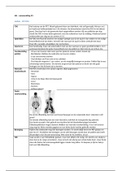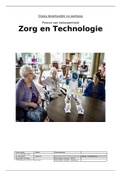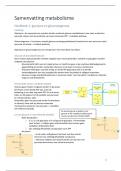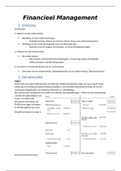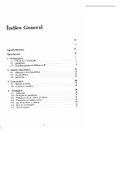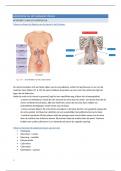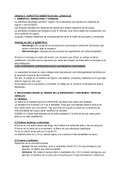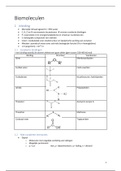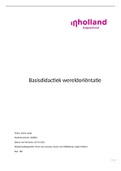Property Law Course Notes
Lecture 1 - The Concept of Property and Type of Property Rights
- Property law as part of public law
- Areas of law related to property law
- Criminal law
- State acts against citizen for retribution or punishment
- Human rights
- Right to property one of the fundamental human rights
- Art 1 of Protocol 1 to the European Convention of Human Rights
- Art 17 of EU Charter of Fundamental Rights
- Right to property
- Administrative law
- E.g. relationship between citizen and city hall
- Property law as part of private law
- Areas related to property law
- Family law
- E.g. matters of succession (inheriting property)
- Contract law
- Tort law
- Damage related to property
Property law as law that governs relations related to things
- intangible/incorporeal
- E.g. claims (when borrowing money)
- Intellectual property
- tangible/corporeal
- Immovable (e.g. land)
- Movable
- Art. 812(2) Italian civil code
- Art. 539(1) Romanian civil code
- All things not movable are immovables
Differences between legal systems - what can be owned
- German and Dutch: only deals with tangible things, claims are not property
- French: all things can be subject to property law
- English law: concerns land law (personal property law)
Property law vs. Contract law
- Both can create an obligation vis-a-vis another person in relation to an object
, - Main difference: extent of right
- Contract law: personal right (against one or more people)
- Contracts exist between specific parties
- Inter partes effect (against one or more ppl)
- Only creates rights and obligations for people who agreed to it
- Party autonomy
- Property law: creates rights against individuals and the world
- Property rights have effect against third parties by nature
- Erga omen effect
- Concern everyone > rights to be respected by everyone
- Numerus clausus: specific set of property rights an individual can have
- Little autonomy
- Framework
- Subject
- Who exercises right in relation to an object
- Legal or natural person
- Right
- Property right can only be one of the limited rights (ownership
most extensive)
- Object
- Tangible or intangible
- Contract and property law linked
Reading notes
- Rights against particular person: personal/relative rights
- Rights not against particular person: absolute rights
- Person to something (object of the right)
- Tangible or intangible
- Property rights
- Erga omnes: effect against everyone
- Droid de suite > right to follow
- If object falls into hands of a person who does not hold the right, right holder can
exercise right against that person
- Freedom of ownership: theoretical perspective
- Individuals free to acquire and dispose of their property
- Right of ownership/property rights: means by which people are entitled to their objects
- Presumption:
- all objects and things are freely transferable unless explicitly prohibited
,Tragedy of the commons: economic perspective
- What can go wrong when resources/common places are shared
- Depletion (exhaust) and exploitation of (natural) resources
- Result in damage of commons due to overuse
Limits of ownership in relation to limits of ‘things’
- Use of nearly everything is limited
- The people who are able to use them also has to be limited to maintain their value
and functionality
common law
- distinction between real and personal property
- real: land, objects permanently fixed to land (immovables)
- personal: objects besides land
- Tangible (chattels) , intangible (choses in action)
civil law
- similar to common law but differently named
- corporeal (tangible) and incorporeal (intangible)
Tort and property law
- tort law offers protection for owner of property
- damage to property = infringement of property
Provisions on property law
- France
- Part of patrimonial law
- 3 books of civil code
- the law of obligations
, - the law of property
- Book II - Articles 515-14 to 710-1
- intellectual property law
- Book III - Articles 711 to 2278
- Germany
- Property as an abstract and theoretical concept
- Difficult to distinguish contract and property law
- Strict distinction in BGB
- Book III BGB
- Netherlands
- German influence on Civil Code - Book 5 BW
- More flexibility than German
- England and Wales
- No coded provisions on property law
- Law of Property Act 1925
- Law of Property (Miscellaneous Provisions) Act 1989
- Case law
Lecture notes
contract
- agreements
- consent
- obligation to keep promise
tort
- wrongs
- involuntary
- obligation to make good
property
- things
- consent, status quo
- absolute rights
functions of property law
- autonomy (economic and social wealth)
- trust, consistency and security
- protection of status quo
- standardised content of property rights
- security right
Lecture 1 - The Concept of Property and Type of Property Rights
- Property law as part of public law
- Areas of law related to property law
- Criminal law
- State acts against citizen for retribution or punishment
- Human rights
- Right to property one of the fundamental human rights
- Art 1 of Protocol 1 to the European Convention of Human Rights
- Art 17 of EU Charter of Fundamental Rights
- Right to property
- Administrative law
- E.g. relationship between citizen and city hall
- Property law as part of private law
- Areas related to property law
- Family law
- E.g. matters of succession (inheriting property)
- Contract law
- Tort law
- Damage related to property
Property law as law that governs relations related to things
- intangible/incorporeal
- E.g. claims (when borrowing money)
- Intellectual property
- tangible/corporeal
- Immovable (e.g. land)
- Movable
- Art. 812(2) Italian civil code
- Art. 539(1) Romanian civil code
- All things not movable are immovables
Differences between legal systems - what can be owned
- German and Dutch: only deals with tangible things, claims are not property
- French: all things can be subject to property law
- English law: concerns land law (personal property law)
Property law vs. Contract law
- Both can create an obligation vis-a-vis another person in relation to an object
, - Main difference: extent of right
- Contract law: personal right (against one or more people)
- Contracts exist between specific parties
- Inter partes effect (against one or more ppl)
- Only creates rights and obligations for people who agreed to it
- Party autonomy
- Property law: creates rights against individuals and the world
- Property rights have effect against third parties by nature
- Erga omen effect
- Concern everyone > rights to be respected by everyone
- Numerus clausus: specific set of property rights an individual can have
- Little autonomy
- Framework
- Subject
- Who exercises right in relation to an object
- Legal or natural person
- Right
- Property right can only be one of the limited rights (ownership
most extensive)
- Object
- Tangible or intangible
- Contract and property law linked
Reading notes
- Rights against particular person: personal/relative rights
- Rights not against particular person: absolute rights
- Person to something (object of the right)
- Tangible or intangible
- Property rights
- Erga omnes: effect against everyone
- Droid de suite > right to follow
- If object falls into hands of a person who does not hold the right, right holder can
exercise right against that person
- Freedom of ownership: theoretical perspective
- Individuals free to acquire and dispose of their property
- Right of ownership/property rights: means by which people are entitled to their objects
- Presumption:
- all objects and things are freely transferable unless explicitly prohibited
,Tragedy of the commons: economic perspective
- What can go wrong when resources/common places are shared
- Depletion (exhaust) and exploitation of (natural) resources
- Result in damage of commons due to overuse
Limits of ownership in relation to limits of ‘things’
- Use of nearly everything is limited
- The people who are able to use them also has to be limited to maintain their value
and functionality
common law
- distinction between real and personal property
- real: land, objects permanently fixed to land (immovables)
- personal: objects besides land
- Tangible (chattels) , intangible (choses in action)
civil law
- similar to common law but differently named
- corporeal (tangible) and incorporeal (intangible)
Tort and property law
- tort law offers protection for owner of property
- damage to property = infringement of property
Provisions on property law
- France
- Part of patrimonial law
- 3 books of civil code
- the law of obligations
, - the law of property
- Book II - Articles 515-14 to 710-1
- intellectual property law
- Book III - Articles 711 to 2278
- Germany
- Property as an abstract and theoretical concept
- Difficult to distinguish contract and property law
- Strict distinction in BGB
- Book III BGB
- Netherlands
- German influence on Civil Code - Book 5 BW
- More flexibility than German
- England and Wales
- No coded provisions on property law
- Law of Property Act 1925
- Law of Property (Miscellaneous Provisions) Act 1989
- Case law
Lecture notes
contract
- agreements
- consent
- obligation to keep promise
tort
- wrongs
- involuntary
- obligation to make good
property
- things
- consent, status quo
- absolute rights
functions of property law
- autonomy (economic and social wealth)
- trust, consistency and security
- protection of status quo
- standardised content of property rights
- security right


